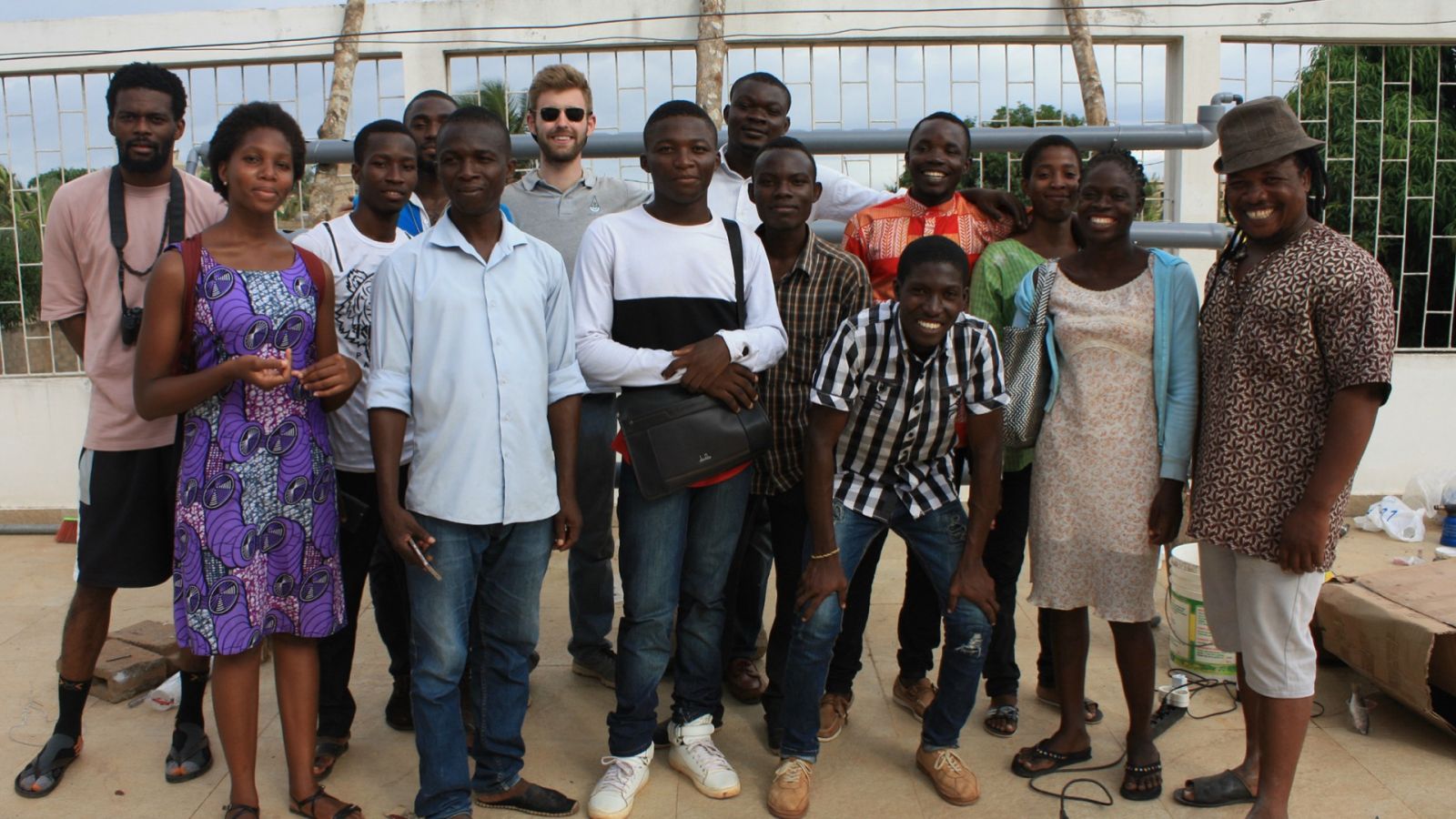
Scott Massey, a 2017 graduate of Purdue Polytechnic’s mechanical engineering technology program and CEO of Heliponix LLC, traveled to a small country in Africa to help residents create sustainable agriculture methods.
In Togo, a country with about 7.5 million residents, people who survive on subsistence farming struggle to purchase irrigation equipment and fertilizers that would increase food production. Massey and Delia Diabangouaya, quality production manager at a food company in Togo, explored ways to adapt technology developed for the Heliponix GroPod, a dishwasher-sized kitchen appliance in which consumers grow fresh produce without soil while using 95% less water than traditional agricultural methods.
Making the technology work for the average person in Togo, where materials that could be used for the system are very different, proved to be a “difficult design challenge,” Massey said. “If the design I shared had a single part that was unobtainable, then the entire design was worthless and would have no lasting impact. I needed a realistic plan that could be scaled across the country.”
With help from Diabangouaya and others, including local farmers, students and tradesmen, Massey revised and open-sourced the design.
“This will allow anyone in Africa to build their own system and improve upon the designs as its user base expands,” said Massey. “This system would cost $300 to build and could continue producing crops even when the power goes out.”
Heliponix, which was formerly named Hydro Grow LLC, was founded by Massey and Ivan Ball, a 2017 graduate who majored in electrical engineering technology. Massey and Ball worked together as undergraduate researchers on a project aimed at creating a hydroponic system for future space colonies. They assisted Cary Mitchell, professor of horticulture and director of Purdue’s NASA Specialized Center of Research and Training in Advanced Life Support. The project inspired Massey to create concept drawings for a home appliance that used the same approach.
“Our progress in Africa will not be tracked in dollars earned, but instead the number of mouths fed and lives saved from hunger,” said Massey.
Read the full Purdue News article.
Additional information:
- Heliponix
- Hydroponics research leads to student startup
- Hydro Grow continues its winning ways
- Seniors win big with home-based hydroponics garden
